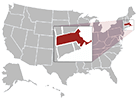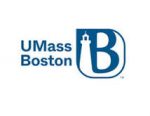
Nursing is a popular and rewarding career, regardless of your home state.
In addition to providing an elevated level of satisfaction that comes with making a lasting and significant difference in your patients’ lives, nursing delivers a high salary and ongoing employment opportunities.
While becoming a registered nurse varies between states, there are many commonalities.
If you are interested in becoming a nurse in Massachusetts, then understanding the process will be critical to your success.
To learn more about becoming a Massachusetts registered nurse, keep reading!
Page Navigation
- 5 Registered Nurse Schools in Massachusetts
- Salary
- Frequently Asked Questions
- What are the steps to becoming a registered nurse in Massachusetts?
- Is there value in pursuing an MSN at a Massachusetts school?
- What considerations should you take when comparing Massachusetts nursing schools?
- What is the minimum amount of time it takes to become a registered nurse in Massachusetts?
- What is the registered nursing career outlook in Massachusetts?
5 Registered Nurse Schools in Massachusetts
Massachusetts is home to some of the best schools in the United States.
Several of the top nursing schools in the state include:
Boston College

Consistently considered one of the best schools in the U.S., Boston College was founded on Jesuit beliefs and was the first college in the state to open its doors.
The excellent nursing school offers a bachelor’s in nursing (BSN), master’s in nursing (MSN), Doctor of Nursing Practice (DNP), DNP in nurse anesthesia, and a Ph.D. in nursing.
In addition, BSN students can work on an MSN during the final two years of the program, thus saving money and cutting time for those looking to advance to the next educational level.
Boston College is not an inexpensive school, with an annual tuition cost of %59,000.
However, the excellent curriculum pays off with an impressive 92% NCLEX passing rate.
Massachusetts College of Pharmacy & Health Sciences
![]()
With an annual tuition of around $35,000, Massachusetts College of Pharmacy & Health Sciences (MCPHS) students get their money’s worth with a 92% NCLEX passing rate among graduates.
In addition to this impressive passing rate, MCPHS is consistently ranked as one of the top schools in the U.S. for earning power.
With three campuses across the state, students have an option to complete their nursing program closer to home.
The School of Nursing has three undergraduate programs and six graduate degrees, all nationally ranked.
Simmons College

Located in Boston, Simmons College is not as well-known as the others on this list and, as a result, boasts a meager student-to-faculty ratio of 11:1.
Nursing students enjoy personalized learning and an NCLEX passing rate of 93%!
In addition to the traditional BSN, learners can take a 16-month accelerated BSN program, RN-BSN transition option, and a five-year BS/MSN degree.
However, the annual tuition of the traditional BSN is the highest on this list at around $66,000.
UMass – Amherst

UMass Amherst is the main campus of the University of Massachusetts system and one of the top public research schools in the U.S., which could interest doctoral and master’s-seeking students.
The College of Nursing has three graduate-level degrees, three BSN tracks, and post-master’s specialization certificates.
The traditional BSN can be pursued in the traditional and accelerated formats, with the traditional option boasting an honors program.
Additionally, the school offers an online RN-BSN program.
In-state annual tuition is around $8,800, and the NCLEX passing rate is 90%.
UMass – Boston

UMass Boston is an easy drive from downtown Boston and is on the water.
With only 16,000 students, UMass Boston is considered a small research school with an excellent nursing program.
The school offers accelerated BSN, RN-BSN transfer, traditional BSN, MS, Ph.D., and BS-DNP degrees.
The in-state tuition is an affordable $14,542, and graduates are well prepared for the NCLEX exam with a passing rate of 90%.
Registered Nurse Schools in Massachusetts – Summary Table
Top 5 Schools in Massachusetts
| School Name | Address |
|---|---|
| Boston College | 140 Commonwealth Ave, Chestnut Hill, MA 02467, |
| Massachusetts College of Pharmacy & Health Sciences | 179 Longwood Ave, Boston, MA 02115 |
| Simmons College | 300 Fenway, Boston, MA 02115 |
| UMass – Amherst | Amherst, MA 01003 |
| UMass – Boston | 100 Morrissey Blvd, Boston, MA 02125 |
Salary
The average registered nurse’s national annual salary is $83,200, ranging from $59500 to $106,800.
Comparatively, the average income in Boston, Massachusetts, is over $10,000 per year higher at $93,700, with a range of $67,100 to $120,400.
Annual Salary Range:Average Salary of Registered Nurse (RN)s in Massachusetts
| City Name | Salary |
|---|---|
| Boston | $74,820 |
| Worcester | $69,930 |
| Springfield | $68,900 |
| Lowell | $72,390 |
| Cambridge | $74,820 |
| Brockton | $71,920 |
| New Bedford | $69,990 |
| Fall River | $69,990 |
| Lynn | $74,820 |
| Quincy | $74,820 |
Regional Salary in Massachusetts
| Region | Employed | Avg. Annual Salary | Avg. Hourly Pay | Top 10% Annual Salary | Bottom 10% Annual Salary |
|---|---|---|---|---|---|
| Barnstable Town, MA | 2,110 | $102,390 | $49.22 | $140,510 | $70,910 |
| Boston-Cambridge-Nashua, MA-NH | 64,120 | $111,930 | $53.81 | $169,960 | $76,170 |
| Leominster-Gardner, MA | 1,140 | $100,690 | $48.41 | $132,710 | $65,500 |
| New Bedford, MA | 1,620 | $94,220 | $45.3 | $134,060 | $68,080 |
| Pittsfield, MA | 1,220 | $101,410 | $48.76 | $155,070 | $66,900 |
| Springfield, MA-CT | 7,530 | $91,430 | $43.96 | $122,990 | $64,820 |
| Worcester, MA-CT | 7,640 | $105,550 | $50.75 | $146,070 | $71,530 |
* Employment conditions in your area may vary.
Frequently Asked Questions
What are the steps to becoming a registered nurse in Massachusetts?
To practice as a registered nurse in Massachusetts, you must earn a nursing license.
Massachusetts does not participate in the NLC (Nursing License Compact) program, which allows nurses from other states to practice in member states.
Therefore, the first step is completing an accredited nursing program by earning.
Once completed, you must pass the NCLEX exam, which was created to evaluate your knowledge of critical nursing areas.
Finally, you must apply for a Massachusetts nursing license.
Additionally, you must renew this license every two years to maintain the ability to practice.
Is there value in pursuing an MSN at a Massachusetts school?
In addition to being better at your job, an advanced nursing degree can earn an additional $20,000 in annual income over time.
Also, holding an MSN makes you a more attractive prospect for higher-level positions within the medical community, which also have better salaries.
What considerations should you take when comparing Massachusetts nursing schools?
With so many exceptional options within the state, it can be challenging to decide upon a school.
To help narrow the field, look for annual tuition and program cost, financial aid options, cost of living for the area, distance from hospitals and clinics, program length, accreditation, private vs. public school, and program outcomes.
What is the minimum amount of time it takes to become a registered nurse in Massachusetts?
Those who enroll in an associate degree program can earn their nursing license in as little as two years.
What is the registered nursing career outlook in Massachusetts?
Demand for registered nurses in the state continues to be strong and is a promising career for many future decades.
The U.S. Department of Health and Human Services Health Resources determined that the state is expected to experience a shortfall of approximately 3,600 registered nurses, licensed practical nurses, and nurse practitioners by 2030.




